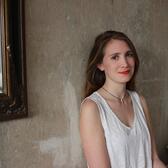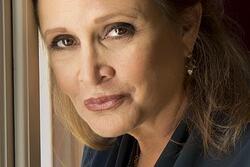Can Wonder Woman Come Fix Our World Now, Please?
Gal Gadot at the 2014 San Diego Comic Con. Photo courtesy of Gage Skidmore.
Warning! This review contains spoilers! If you haven't seen Wonder Woman yet, get ye to a theater, then come back and read!
At the onset of Patty Jenkins’ Wonder Woman, protagonist Diana Prince has spent her millennia-long life on Themyscira, an idyllic Mediterranean colony of Amazonian women where she grows up learning badass warrior skills from wise matriarchs. The plot kicks off when an American pilot crash-lands off the island’s coast. He tells Diana, played by Israeli actress Gal Gadot, about a cataclysmic war raging back in the world of men, instigated by the bad guys. Who are the bad guys? she asks. He explains succinctly: the Germans.
I must confess that I groaned. I suspected, as I imagine many British and American viewers might, that this choice of villain signaled another morally unambiguous superhero movie in which a heroic America (aided by the friendly Brits!) fights the good fight against unequivocal evil. Brotherhood and sacrifice abound, and good––battered but intact–– triumphs in the end.
I can't help but wonder if this initial presentation of the film’s villain was an intentional, self-aware reference to the oft-simplistic nature of superhero movies–and a deliberate rebuttal. Because, as the following two hours demonstrated, the war that Diana Prince encounters is anything but simple. Diana finds herself in 1918, in the last days of the Great War, a messy, politically and morally complicated (and ultimately pointless) conflict. At first, she's convinced that Ares, the god of war, has corrupted the German army, but as the film unfolds, Diana realizes evil is more nuanced than that. In fact, she hasn't emerged into a world where a deity has corrupted one bad army, but rather into a world constructed of and fueled by intrinsically violent, oppressive systems.
This incarnation of Wonder Woman deliberately and explicitly problematizes the American and British supremacy propagated by so many adventure films. I mean, this is a movie in which Diana asks a Native American character who took his land from him, and he points to the leading man (who is American) and says, “His people.” It's a movie in which a Turkish character explains that he always wanted to be an actor, but he was born the wrong color. Running beneath its exciting action sequences, the movie makes a pointed argument, necessary for our times, that the bad guys aren't a monolithic external force who we can defeat through bravery and camaraderie and masculine force. The bad guys aren’t guys at all, but instead evil stems from the toxic power dynamics of the society in which we all live.
That's what feels so revolutionary about Wonder Woman. It's not just the fact that it's the first superhero movie with a solo female protagonist in twelve years; it’s not just the fact that it features a male character who gives us a model for a supportive, gender-equitable romantic relationship––although both of those are awesome too. It's the fact that it's a story about a woman critiquing a deeply flawed system, one created by men but that victimizes all of us. It's the fact that it's a story about that woman trying to do the right thing despite pushback from people who view the system and the suffering it creates as inevitable.
This isn't a lean-in feminism kind of movie where the heroine proves that she can kick ass and defeat the bad guys just as effectively as a dude. Au contraire, this is a radical feminism kind of movie, wherein a woman who's spent millennia living outside the systems created by the patriarchy is able to critique and subvert those systems. Diana is horrified by this world where, as a woman, she's immediately expelled from the British War Council chambers. She's horrified by officials, both British and German, who push back against the idea of an Armistice because death is simply part of war. She's horrified when she's told to forget the civilians suffering just on the other side of the trenches in Belgium. And she does more than critique: she tries her best to apply her principles of right and wrong, despite being told by her new compatriots that that's simply not how things are done and being reminded by her fellow Amazons and by Ares that the world of men doesn’t deserve her powers and prowess. Indeed, in this incarnation, Wonder Woman’s main temptation is the repeated maxim that she should leave humans to destroy each other, that their capacity for evil means they don’t deserve goodness. But ultimately, she chooses to live by her own principles, eschewing the question of who deserves or doesn’t deserve her. In some ways, she’s a living embodiment of that famous Rabbi Tarfon quote: “It is not your responsibility to finish the work of perfecting the world, but you are not free to desist from it either.”
Of course, much like all groundbreaking female-led media, it's tempting to ask Wonder Woman to be all things at once. Do I have a wish list for things I'd improve in future WW iterations? Of course. For example, are we really supposed to look at Diana's perfectly shaved armpits and believe that the Amazons of Themyscira all follow modern American body hair removal conventions? Are we supposed to believe that all these women weren’t in queer relationships with each other? Did the male actors have to spend so much time raving about how hot Gal Gadot is? Didn't that (very lengthy) concluding CGI battle and its subsequent resolution kind of undermine the rest of the movie? And (perhaps, most troubling of all) why are Wonder Woman and Bruce Wayne sending emails to each other, in this, the year of our lord 2017? We all know snapchat is the preferred medium when it comes to sending someone your thanks for finding a picture of your long-dead boyfriend.
But, of course, one can have a wish list for improvement and still acknowledge that this movie is a groundbreaking story, one that feels especially important for today's United States. As Americans in 2017, it’s tempting to buy into a narrative wherein if we could only defeat one evil guy, everything would be okay again. But evil guys cannot exist without the forces of violence, hopelessness, racism, and sexism that prop them up—the forces that exist in our society, in every society, and within all of us. Sometimes, it takes someone who didn't create that system—say, a woman, wonderful or otherwise—to come in and say, “This is not right. And I'll do what I can to change it, one small, flawed step at a time.”








Fabulous movie review. Love the Rabbinic quote: Rabbi Tarfon “It is not your responsibility to finish the work of perfecting the world, but you are not free to desist from it either.” I can't wait to see the movie. Are there any other women in the movie and what roles do they play? Are women working together to fight evil or are they competitors? For men, WAR is big business; arm sales that are the number one export: TRAGIC.
PHOTON SUPERHERO OF EDUCATION fights IGNORANCE.
EVERY DAY AN EASY A is her weapon of choice. http://www.everydayaneasy.com http://www.BooksNotBombs.com
WORLD PEACE IS COMING TO PLANET EARTH